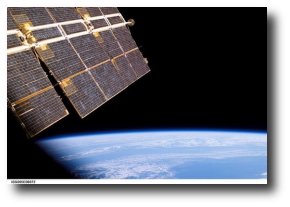 Get ready to learn some new words. Biomimetics and Dye Sensitised solar Cells (DSCs) are two of the technologies that arrive with great promise for capturing or storing solar energy while nanocatalysis develops efficient catalysts for energy-saving industrial processes. These are nanotechnologies, which, according to the European Science Foundation (ESF), can be used to develop sustainable energy systems while reducing the harmful effects of fossil fuels as they are gradually phased out over the next century.
Get ready to learn some new words. Biomimetics and Dye Sensitised solar Cells (DSCs) are two of the technologies that arrive with great promise for capturing or storing solar energy while nanocatalysis develops efficient catalysts for energy-saving industrial processes. These are nanotechnologies, which, according to the European Science Foundation (ESF), can be used to develop sustainable energy systems while reducing the harmful effects of fossil fuels as they are gradually phased out over the next century.
The news emerged from a recent conference called Nanotechnology for Sustainable Energy, organized by ESF) and Fonds zur Förderung der wissenschaftlichen Forschung in Österreich (FWF) and the Leopold-Franzens-Universität Innsbruck (LFUI). The conference focused on solar rather than other sustainable energy sources such as wind, because that is where nanotechnology is most applicable and also because solar energy conversion holds the greatest promise as a long-term replacement of fossil fuels. Solar energy can be harvested directly to generate electricity or to yield fuels such as hydrogen for use in engines. Such fuels can also in turn be used indirectly to generate electricity in conventional power stations.
“If solar energy is harvested where it is most abundant, and distributed on a global net (easy to say – and a hard but not impossible task to do) it will be enough to replace a large fraction of today’s fossil-based electricity generation,†said Kasemo. “It also would solve the day/night problem and therefore reduce storage needs because the sun always shines somewhere”, said Professor Bengt Kasemo from Chalmers University of Technology, the chair of the ESF conference.
Isn’t it fantastic what the human mind can imagine when put to good use? I’ll point you to ESF’s website where there’s a lot more to learn about this for the more scientifically-minded. And if you know something about nanotechnology, what do you think about these announcements? We’d love to hear more about this.





